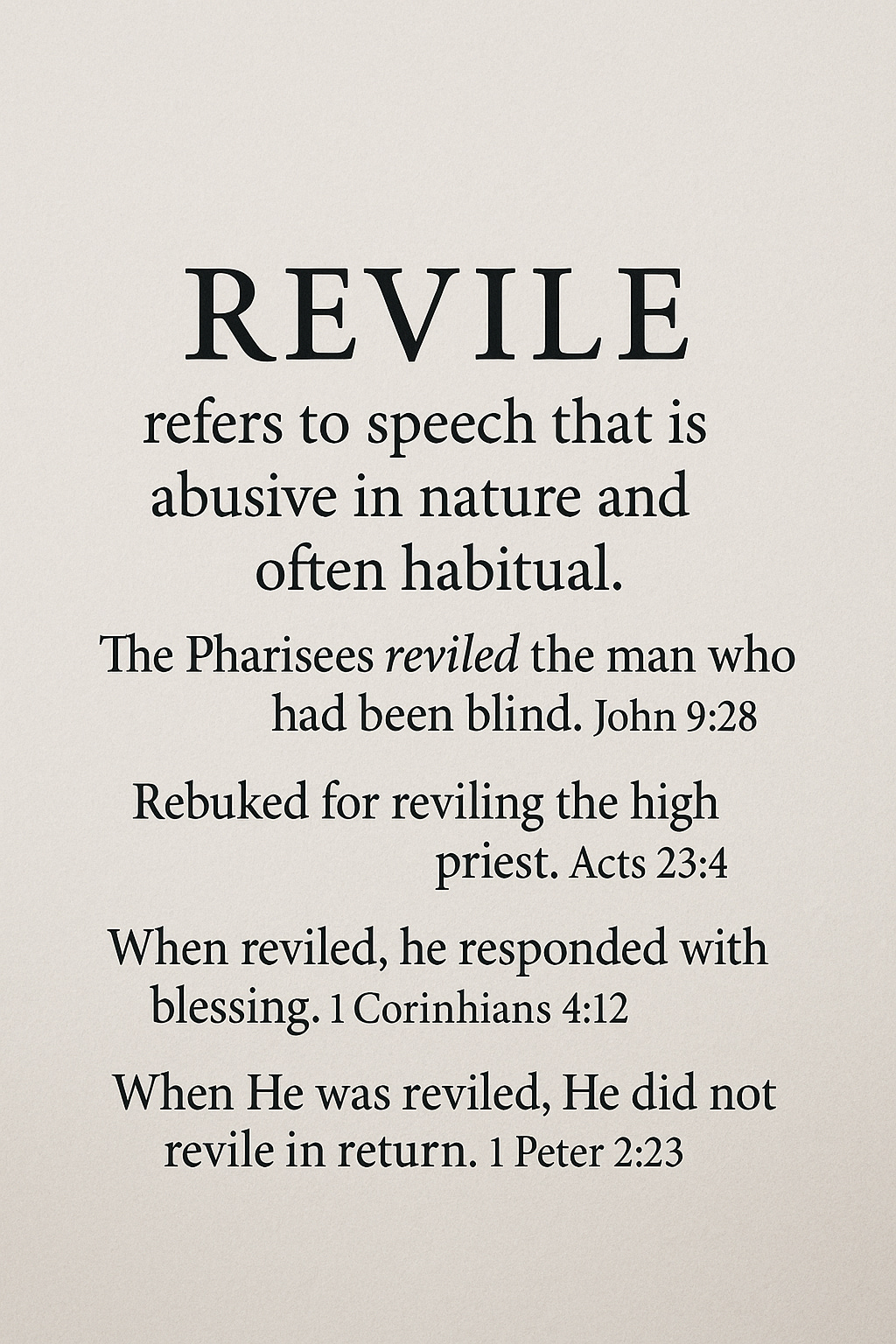Revile (λοιδορέω)
The word “revile” refers to speech that is abusive in nature and often habitual.
The Pharisees had such religious zeal for the Sabbath that it blinded them to the most incredible signs of the presence of the Messiah. Jesus healed a blind man, but because He did so on the Sabbath, the Pharisees accused Him of not being from God (John 9:16). After questioning the man’s parents—because they did not believe he had truly been healed—they again brought the man back to question him concerning the One who had healed him. The man who had been blind asked them, in response to their repeated questioning, whether they also wanted to become Jesus’ disciples (John 9:27). In response, the Pharisees reviled the man, claiming they were disciples of Moses (John 9:28).
When Paul was defending himself against false accusations from the Jews before Felix the governor, Ananias commanded that he be struck. Paul responded by calling him out for his unrighteous actions—judging him according to the Law while violating that very Law. Those standing nearby rebuked Paul for reviling the high priest (Acts 23:4). By calling the high priest a “whitewashed wall,” the Jews perceived this as abusive speech.
The apostles were regarded as men condemned, made a spectacle to the world, both to angels and to men—becoming fools for Christ’s sake, while those they taught became wise in Christ. Paul was weak so that others could be strong. He endured dishonor, hunger, thirst, beatings, homelessness, and hard labor. However, when reviled, he responded with speaking well; when persecuted, he endured (1 Corinthians 4:12).
It is a thing of grace that we are counted worthy to suffer for a good conscience toward God. For we are called to this, because Christ also suffered for us, leaving us an example that we should walk in His steps. He committed no sin, nor was deceit found in His mouth. When He was reviled, He did not revile in return; when He suffered, He did not threaten, but committed Himself to Him who judges righteously (1 Peter 2:23). He bore our sins on the cross so that we might live for righteousness—for by His stripe we are healed. This stripe refers to the time when Christ was separated from God the Father for three hours on the cross, bearing our spiritual death, so that we, being co-buried and co-raised with Him, might walk in newness of life.


